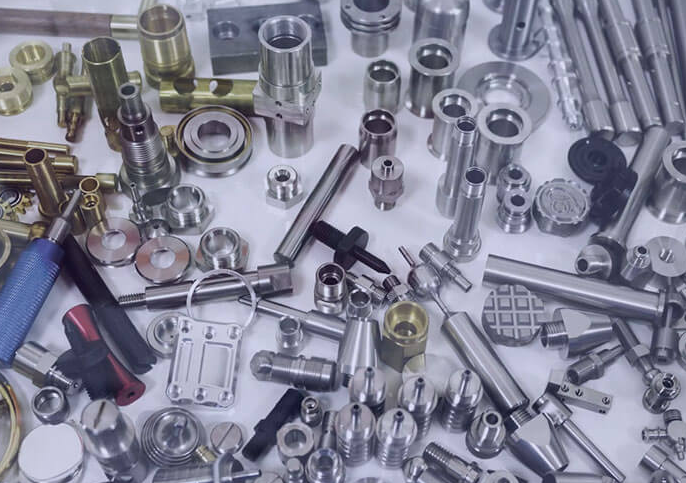
Reliable Solutions from a Custom Fastener Supplier
Introduction
The manufacturing world relies heavily on precision components, and among the most critical of these are fasteners. They hold together machinery, infrastructure, vehicles, electronics, and countless other systems. While off-the-shelf solutions can meet many needs, there are situations where only a custom fastener supplier can provide the right answer. In industries demanding exact specifications, durability, and high performance, customization becomes essential.
This article explores why businesses are increasingly turning to custom fastener suppliers, what advantages these specialized companies offer, and what industries benefit most from their services.
What Is a Custom Fastener Supplier?
A custom fastener supplier specializes in manufacturing or sourcing non-standard fasteners based on specific client requirements. These suppliers do not just provide bolts, screws, or washers — they provide engineering expertise, advanced manufacturing techniques, and tailored support to meet unique fastening needs.
Whether it’s a new product prototype or a replacement custom fastener supplier part for aging equipment, these suppliers design fasteners from scratch or modify standard products to meet detailed requirements, such as tensile strength, thread type, corrosion resistance, or environmental suitability.
Why Standard Fasteners Often Fall Short
While catalog fasteners may work in general applications, there are situations where they are inadequate:
- Unique designs: Custom machinery or equipment often demands fasteners with unique shapes or thread configurations.
- Special materials: Some projects require fasteners made from stainless steel, titanium, brass, or other specific metals to meet industry standards or environmental conditions.
- Extreme conditions: Industries like aerospace or marine engineering require fasteners that can withstand high pressure, temperature changes, or corrosive environments.
A custom fastener supplier can engineer products that match precise needs and provide peace of mind when standard components would compromise performance or safety.
Benefits of Partnering with a Custom Fastener Supplier
1. Tailored Engineering Solutions
Working with a custom fastener supplier provides access to experienced engineers who understand material science, structural loads, and design challenges. Clients can expect design support throughout the development process, including prototyping, testing, and refinement.
2. Enhanced Quality Control
These suppliers follow strict quality control protocols and often hold international certifications such as ISO 9001, AS9100, or IATF 16949. This ensures every fastener is manufactured to the required tolerances and specifications, reducing the risk of product failure.
3. Time and Cost Savings
Although the word “custom” might suggest higher costs, in many cases, using the right component from the beginning reduces long-term expenses. Fewer breakdowns, easier assembly, and reduced downtime translate to better overall ROI.
4. Material and Coating Variety
Custom fastener suppliers offer a wide range of materials and coatings, such as zinc plating, black oxide, passivation, or PTFE coatings. This flexibility allows components to meet exact durability, corrosion resistance, or conductivity requirements.
5. Batch Production Flexibility
Whether a company needs a small prototype batch or a high-volume production run, a reputable custom fastener supplier can scale accordingly. This is particularly beneficial for startups or specialized OEMs that require agility in production scheduling.
See also: Thunder Light GmbH: Revolutionizing Event Planning Through Innovation
Industries That Rely on Custom Fastener Suppliers
Aerospace and Aviation
Aircraft manufacturers demand high-performance fasteners made from advanced materials like Inconel or titanium. These fasteners must endure extreme temperatures, vibration, and mechanical stress. A custom fastener supplier ensures every part meets aerospace regulations and safety standards.
Automotive and Motorsports
From lightweight fasteners in racing cars to corrosion-resistant parts in electric vehicles, the automotive industry depends on customization for innovation and performance. Suppliers can create parts tailored for torque settings, safety, or aesthetics.
Electronics and Telecommunications
Tiny screws, conductive bolts, and non-magnetic fasteners are commonly used in delicate electronics. Fasteners need to be precise and function within compact spaces, which is only possible through custom manufacturing.
Construction and Infrastructure
In critical infrastructure projects, structural fasteners often need to be made from high-strength steel or treated to prevent rust and wear. A custom fastener supplier can meet building codes and withstand demanding construction environments.
Medical Equipment and Devices
Medical devices require specialized fasteners that meet health and safety standards. Custom designs are essential for surgical tools, diagnostic machines, and implants, especially where sterility, biocompatibility, and exact dimensions matter.
Choosing the Right Custom Fastener Supplier
When selecting a supplier, businesses should evaluate several key factors:
- Experience and Expertise: Look for a company with a proven track record across various industries.
- Material Capabilities: A good supplier should offer a broad selection of metals and surface treatments.
- Lead Times and Delivery: Fast turnaround is crucial, especially during the prototyping stage or tight production schedules.
- Certifications: Always ensure the supplier holds relevant certifications to guarantee quality.
- Customer Service: A collaborative approach and transparent communication are essential for a successful long-term partnership.
The Role of Technology in Custom Fastener Manufacturing
Modern custom fastener suppliers utilize advanced technologies to meet today’s demands:
- CNC machining: Offers extreme precision and repeatability for complex designs.
- 3D modeling and CAD support: Helps visualize and simulate stress on parts before production.
- Automated inspection systems: Ensure accuracy in dimension, thread pitch, and coating thickness.
- ERP systems: Streamline order tracking, inventory management, and customer communication.
Challenges in the Custom Fastener Supply Chain
Despite their many benefits, there are challenges in working with custom fastener suppliers:
- Longer lead times: Customization takes time, especially when sourcing rare materials or undergoing additional testing.
- Initial tooling costs: In some cases, manufacturers may need to create new molds or dies, adding to the upfront cost.
- Communication gaps: Misunderstandings between the client and supplier can lead to production delays or errors. Clear specifications and CAD files are essential.
However, these challenges can be overcome through proper planning and working with experienced suppliers who prioritize accuracy and timelines.
Conclusion
Fasteners may be small, but their role in manufacturing, engineering, and construction is massive. When standard solutions don’t suffice, turning to a custom fastener supplier ensures you get the precision, durability, and performance your project demands. Whether you’re designing cutting-edge machinery or maintaining critical infrastructure, investing in custom fasteners is a strategic decision that supports long-term success.
Choosing the right supplier is crucial. Look for one with the technology, experience, and customer-centric approach to deliver excellence at every stage. As industries become more specialized and innovation moves faster than ever, the value of tailored solutions from a custom fastener supplier will only grow.




